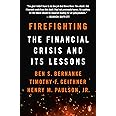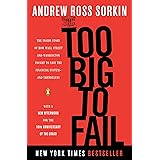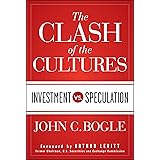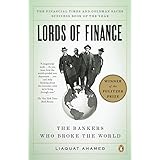
Enjoy fast, free delivery, exclusive deals, and award-winning movies & TV shows with Prime
Try Prime
and start saving today with fast, free delivery
Amazon Prime includes:
Fast, FREE Delivery is available to Prime members. To join, select "Try Amazon Prime and start saving today with Fast, FREE Delivery" below the Add to Cart button.
Amazon Prime members enjoy:- Cardmembers earn 5% Back at Amazon.com with a Prime Credit Card.
- Unlimited Free Two-Day Delivery
- Streaming of thousands of movies and TV shows with limited ads on Prime Video.
- A Kindle book to borrow for free each month - with no due dates
- Listen to over 2 million songs and hundreds of playlists
- Unlimited photo storage with anywhere access
Important: Your credit card will NOT be charged when you start your free trial or if you cancel during the trial period. If you're happy with Amazon Prime, do nothing. At the end of the free trial, your membership will automatically upgrade to a monthly membership.
Buy new:
-37% $12.67$12.67
Ships from: Amazon.com Sold by: Amazon.com
Save with Used - Good
$9.34$9.34
Ships from: Amazon Sold by: ZBK Wholesale

Download the free Kindle app and start reading Kindle books instantly on your smartphone, tablet, or computer - no Kindle device required.
Read instantly on your browser with Kindle for Web.
Using your mobile phone camera - scan the code below and download the Kindle app.

OK
 Audible sample Sample
Audible sample Sample 


Stress Test: Reflections on Financial Crises Paperback – May 5, 2015
Purchase options and add-ons
New York Times Bestseller
Washington Post Bestseller
Los Angeles Times Bestseller
Stress Test is the story of Tim Geithner’s education in financial crises.
As president of the Federal Reserve Bank of New York and then as President Barack Obama’s secretary of the Treasury, Timothy F. Geithner helped the United States navigate the worst financial crisis since the Great Depression, from boom to bust to rescue to recovery. In a candid, riveting, and historically illuminating memoir, he takes readers behind the scenes of the crisis, explaining the hard choices and politically unpalatable decisions he made to repair a broken financial system and prevent the collapse of the Main Street economy. This is the inside story of how a small group of policy makers—in a thick fog of uncertainty, with unimaginably high stakes—helped avoid a second depression but lost the American people doing it. Stress Test is also a valuable guide to how governments can better manage financial crises, because this one won’t be the last.
Stress Test reveals a side of Secretary Geithner the public has never seen, starting with his childhood as an American abroad. He recounts his early days as a young Treasury official helping to fight the international financial crises of the 1990s, then describes what he saw, what he did, and what he missed at the New York Fed before the Wall Street boom went bust. He takes readers inside the room as the crisis began, intensified, and burned out of control, discussing the most controversial episodes of his tenures at the New York Fed and the Treasury, including the rescue of Bear Stearns; the harrowing weekend when Lehman Brothers failed; the searing crucible of the AIG rescue as well as the furor over the firm’s lavish bonuses; the battles inside the Obama administration over his widely criticized but ultimately successful plan to end the crisis; and the bracing fight for the most sweeping financial reforms in more than seventy years. Secretary Geithner also describes the aftershocks of the crisis, including the administration’s efforts to address high unemployment, a series of brutal political battles over deficits and debt, and the drama over Europe’s repeated flirtations with the economic abyss.
Secretary Geithner is not a politician, but he has things to say about politics—the silliness, the nastiness, the toll it took on his family. But in the end, Stress Test is a hopeful story about public service. In this revealing memoir, Tim Geithner explains how America withstood the ultimate stress test of its political and financial systems.
- Print length592 pages
- LanguageEnglish
- PublisherCrown
- Publication dateMay 5, 2015
- Dimensions5.15 x 1.3 x 8 inches
- ISBN-100804138613
- ISBN-13978-0804138611
The Amazon Book Review
Book recommendations, author interviews, editors' picks, and more. Read it now.
Frequently bought together

Similar items that may ship from close to you
Editorial Reviews
Review
“He’s written a really good book — we might as well get that out of the way, as so much else about Timothy F. Geithner remains unsettled… There’s hardly a moment in Geithner’s story when the reader feels he is being anything but straightforward — a near-superhuman feat for someone who spent so much time in public life defending himself from careless and dishonest personal attacks. The decisions he made are easier to criticize than they are to improve upon. I doubt many readers will put his book down and think the man did anything but his best. On his feet he might have stammered and wavered. That in itself was always a sign he was unusually brave.” –Michael Lewis, New York Times Book Review
“An intimate take on the financial crisis… gripping… conveys in visceral terms just how precarious things were during the crisis, just how frightened many first responders were, and just what an achievement it was to avert a major depression… [Geithner] demonstrates that he can discuss economics in an accessible fashion, making the situation the country faced in 2008 and 2009 tactile, comprehensible—and harrowing—to the lay reader. Along the way, he also gives us a telling portrait of himself.” –New York Times
“A how-to manual for anyone faced with a financial crisis… Mr Geithner was known for his brutal candor, and as an author, he does not disappoint.” —The Economist
“A fascinating memoir about life in the maelstrom of the financial crisis… Earlier books have described much of what happened that September, but Geithner was present for all the frantic meetings, the thousands of phone calls — and in the case of Lehman, the failure to find a buyer that could keep it alive. New problems cropped up almost weekly, if not daily. He explains each in easy-to-understand language and what the issues were that shaped the responses… There could be another crisis someday, of course, but what Geithner and his colleagues did has made one far less likely.” –USA Today
“Sharply worded and candid memoir.” —Financial Times
“Geithner does an admirable job of explaining the origins and complexities of the crisis for the average person. But there’s enough detail and retrospective lessons-learned to make it valuable for students of financial history….fast-paced and colorful….Stress Test goes beyond other crisis books.” –Los Angeles Times
“Throughout Stress Test, one gains a deep appreciation for the heart-pumping decisions made by Geithner and his colleagues from 2007 through 2012. And he makes a compelling case that overhwelming force is necessary in crisis, and that the measures taken by the Fed and two successive administrations prevented even more pain for ordinary Americans.” –WashingtonPost.com
“An unsparing insider’s account of the financial crisis from the former Secretary of the Treasury, unpacking the hard decisions and terrible trade-offs that devastated the economy but staved off a deep, lasting depression.” —TIME.com
“The central irony of Stress Test, the new memoir by former U.S. Treasury Secretary Tim Geithner, is that a guy who was accused of being a lousy communicator while in office has penned a book that is such a good read…I’ve now read four or five of these first drafts of the history of the Great Recession, and I believe Stress Test represents the biggest contribution of the bunch.” —Bill Gates
“Sensational . . . Tim’s book will forever be the definitive work on what causes financial panics and what must be done to stem them when they occur.” —Warren Buffett
“Very few important subjects in American history have been the subject of as much disinformation and deliberate distortion as the events surrounding the financial crisis that broke in 2008. Tim Geithner’s candid, clear-headed, and refreshingly self-effacing account of his role in formulating the federal government’s response is a very welcome antidote. Geithner’s book is a triple threat: it is first-rate economic history, insightful political science, and, most important, a cogent exposition of the importance of adhering to the policies adopted in the aftermath of the crisis if we are to succeed in diminishing the likelihood of any recurrence.” —Barney Frank
“Stress Test is an absolutely compelling account of the financial crisis, written in a clear, graceful style with striking honesty at every step along the way. Timothy Geithner brings a complex story to life with telling anecdotes and personal reflections.” —Doris Kearns Goodwin
“This is a lucid, fascinating, and extremely important book. Every American should read it. Geithner does something unusual: he engages in substance. With both insight and humility, plus a good dose of wry humor, he explains what really happened during the financial crisis. No matter your political persuasion, you will find this book educational, enlightening, and interesting.” —Walter Isaacson
“The country owes Tim Geithner great appreciation for his role in overcoming the financial crisis of 2008. He has now indebted it further with writing a thoughtful, very readable and informative account of the conduct of policy at the edge of disaster.” —Henry A. Kissinger
About the Author
Product details
- Publisher : Crown; Reprint edition (May 5, 2015)
- Language : English
- Paperback : 592 pages
- ISBN-10 : 0804138613
- ISBN-13 : 978-0804138611
- Item Weight : 15.8 ounces
- Dimensions : 5.15 x 1.3 x 8 inches
- Best Sellers Rank: #557,110 in Books (See Top 100 in Books)
- #294 in Government & Business
- #1,200 in Economic History (Books)
- #1,680 in Biographies of Business & Industrial Professionals
- Customer Reviews:
About the author

Discover more of the author’s books, see similar authors, read author blogs and more
Customer reviews
Customer Reviews, including Product Star Ratings help customers to learn more about the product and decide whether it is the right product for them.
To calculate the overall star rating and percentage breakdown by star, we don’t use a simple average. Instead, our system considers things like how recent a review is and if the reviewer bought the item on Amazon. It also analyzed reviews to verify trustworthiness.
Learn more how customers reviews work on Amazon-
Top reviews
Top reviews from the United States
There was a problem filtering reviews right now. Please try again later.
The political aspect for me is what makes this book especially important. He provides an inside look into the way politicians operate. He recounts numerous examples of politicians using the crisis to further their own personal agendas. An example of this is his discussion of the Dodd Frank bill, which was written by a bunch of politicians who know close to nothing about the enormous market they are regulating. The most glaring aspect is the way in which the politicians want to seize ever more power by enlarging the government, and consequently reducing the power of the private market. Geithner himself is very clear about the size of government that he thinks is preferable. He wants a government that has the power to unilaterally act how it wants and when it wants, he believes time is of the essence and in the future government should not have to wait for anything. To anyone who values freedom, this principle should be frightening. This is nowhere near the type of society that was meant to be created in 1776 and people should be cognizant of the political wishes of the democratic party.
Another critical principle this book demonstrates is how government controls breed more controls. Geithner starts by discussing the banking regulations but quickly moves to how other industries don't have similar regulations, but need them. This is an almost endless cycle of enlarging the government's power.
Read this book for a fascinating retelling of the most dramatic crisis since the Great Depression, but also beware of the scope and power that liberals want to assign to the government. In all of mankind's history if you compare the enormity of evils inflicted by governments versus by businessmen (bankers included), there will not be a shadow of doubt as to which group has the greater potential for evil.
Can be a bit overwhelming in its treatment of the various elements of the crisis, including the reasons for it and the actions taken to resolve it. But it strikes me that Geithner tried hard to be as effective as possible in describing what was inherently an enormously complex set of causes and fixes. There was no pre-existing playbook, and much was defined in real time.
I don’t see this as a politically-motivated book, though Geithner is unabashed in his praise for Obama throughout. He is direct in his assessment of the actions of Congress and other individuals (not universally positive), with Republicans getting the most criticism. He is equally forthcoming in pointing out mistakes - both well-meaning as well as dumb, whether his own or others. There are no doubt errors, omissions, and biases that I can’t recognize.
Geithner is very generous in his recognition of the contributions of the enormous number of talented and dedicated people throughout the government who worked the problem, but he is not shy about describing his own roles and leadership in driving for actions, even though fraught with risks. It seems arguable that history will identify him as the singular force in managing the crisis - not only for the US, but also for the world. Yet, it seems clear that this was not a personal goal. Indeed, his story may well be regarded as one of a “reluctant hero” who was doing his best in his job.
Glad I read it - hope the story never repeats.
--MIKE TYSON
Former Secretary of the Treasury, Timothy Geithner, has finally written his version of the Great Recession in which he oversaw the $700 billion intervention for the financial services system. The former Secretary quotes Mike Tyson to shed light on his own predicament: Geithner had a strategy, but convincing Congress and an administration bent on punishing business changed the way he played the game. Geithner admits the experience left him with scars. He saw appalling behavior in the political arena--"selfish and grandstanding, shameless hypocrisy, and mindless partisanship."
Stress Test is a fascinating behind-the-scenes history of the period as well as a warning sign of deeper fractures in our country's relations between business and politics. The overarching theme is based on a biblical conceit in which the average fellow--blindsided and gored by risk hungry bulls, and Geithner is clearly biased about who he feels deserves the blame - Wall Street, Republicans in Congress, and less conscientious regulators--is now demanding divine intervention and some brutal "Old Testament punishment."
At its depth, $15 trillion in wealth disappeared from American's balance sheets, bringing pensions and the college and retirement funds of average Americans to an abrupt halt. Nearly 9 million workers lost jobs and an equal number slipped below the poverty level. Unemployment rose to 10 percent. Then the causes started to surface and we began hearing about these newfangled things called derivatives, CDS and CDS squared. Most Americans agreed with former Fed Chair Paul Volcker who quipped, "There hasn't been a useful financial innovation since the ATM."
The turnaround that Geithner describes--in which the leading characters in addition to himself include President Barack Obama; two-term Fed Chair Ben Bernanke; economic advisor Larry Summers; and scores of Great Recession warriors--ultimately enabled the country to right itself and make a return on its investment, so that by the end of 2010 the government owned no more banks. Geithner's retelling of this tale is perfect bliss for those obsessed with America's story of the Great Recession.
But even the most supportive reader has to ask why, as president of the New York Fed, even he was blindsided by the collapse of Lehman and the impact on other major investment banks over which he had jurisdiction? He writes candidly about the strange set of circumstances that led him to appoint Dick Fuld to the NY Fed board, and subsequently when everything went wrong, had to walk that back in a hurry. But how could a savvy regulator be caught unawares by the timing of the financial crisis given exhibit number one was a board director, and the Fed was indeed the official regulator of the other major banks? The banker's misdeeds, if business practices that were condoned and approved by regulators could be called that, should have been quite easily discovered by the annual audits the Fed conducts on all regulated firms. Instead, Geithner points at the shadow banking system that included Fannie Mae, Freddie Mac, unregulated mortgage originators, and firms that "behaved like banks without having to obey bank safety and soundness rules." The only plausible answer is that none of the bankers, nor anyone in power at the time, foresaw the housing crisis morph into the credit crisis and from there to the global financial meltdown. This is not to blame Geithner, in fact, he should be praised for his brilliant performance, but to observe that no one knew how devastating this was going to be.
One regulator did have a hunch, however, and Geithner takes her on somewhat defensively. Brooksley Born, the feisty and outspoken chair of the Commodity Futures Trading Commission (CFTC), was the first to "float the idea of regulating privately traded derivatives." Geithner pauses here to give a pass to all the U.S. regulators who felt her proposal would "create dangerous legal uncertainties and ultimately financial chaos". It wasn't Born vs. the Old Boys Club, he asserts, before impaling the CFTC as unequal to the Fed, and a captive voice of Chicago trading culture. In the end, Geithner writes, Born "just didn't have a plausible plan." Ouch.
In politics, what really matters is not what you did as what you do, which explains why George W. Bush and his Fed chair, Alan Greenspan, get short shrift, while Elizabeth Warren is treated royally.
An entire chapter could be devoted to Larry Summers, whose brilliance Geithner underscores with a quote from Henry Kissinger: "All administrations should have a permanent office for Larry Summers."
For political and economic history junkies, Stress Test is required, and even enjoyable reading. It is a story that hopefully no one will need to rewrite any time soon.
Top reviews from other countries
Reviewed in Brazil on July 2, 2021

Reviewed in Mexico on July 20, 2019













